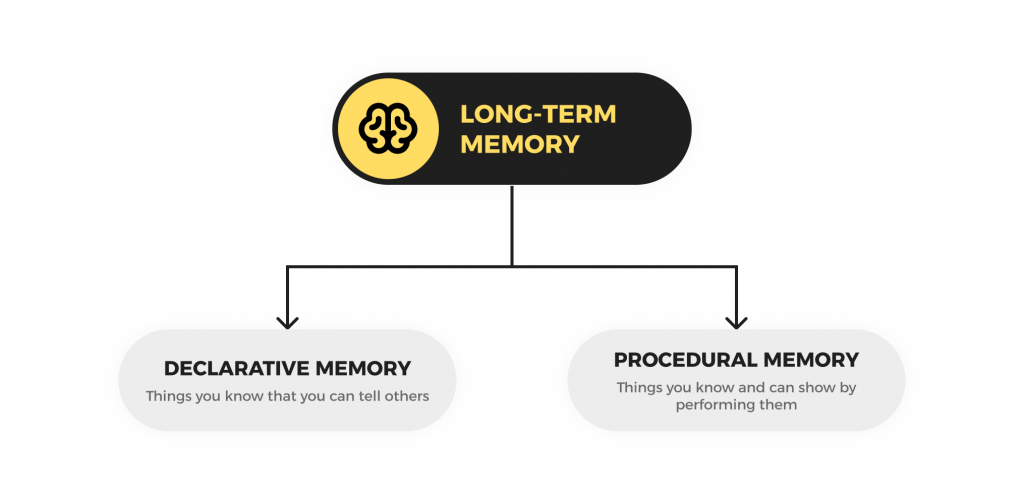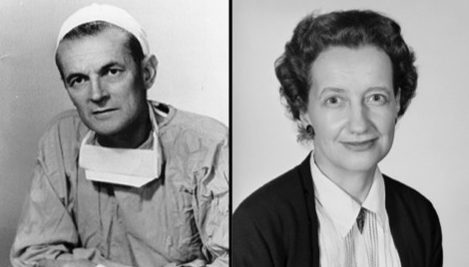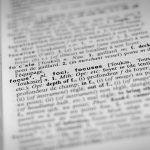Scoville and Milner in 1957 studied a patient named Henry Molaison.
Henry suffered from severe epilepsy and underwent a surgical procedure in 1953 to alleviate his seizures. The surgical procedure involved the removal of a portion of his brain, including the parts known as the hippocampus and the amygdala.
A weird thing happened after the surgery:
- He could form some memories which were short term, but he was completely unable to form long-lasting memories for events or facts.
- He could learn and remember new motor skills and tasks, even though he had no conscious memory of having learned them.
This proves the existence of of two types of memory:
- Declarative memory, also called implicit memory, is based on the concept that we can explicitly store and retrieve this memory in terms of facts and figures. It is conscious.
- Procedural memory, called explicit memory, is the type of memory that involves the learning and performance of motor skills and tasks. It is subconscious.

When riding a bike, procedural memory will explain to you how to ride a bike while declarative memory will explain the routes through which you need to cycle to reach the destination.
When learning a language, declarative memory will give you individual words and explain the grammar rules, while procedural memory will explain the actual communication. Procedural memory is the location of your native language or languages you speak very well. You use them instinctively and effortlessly. Just like riding a bike.








